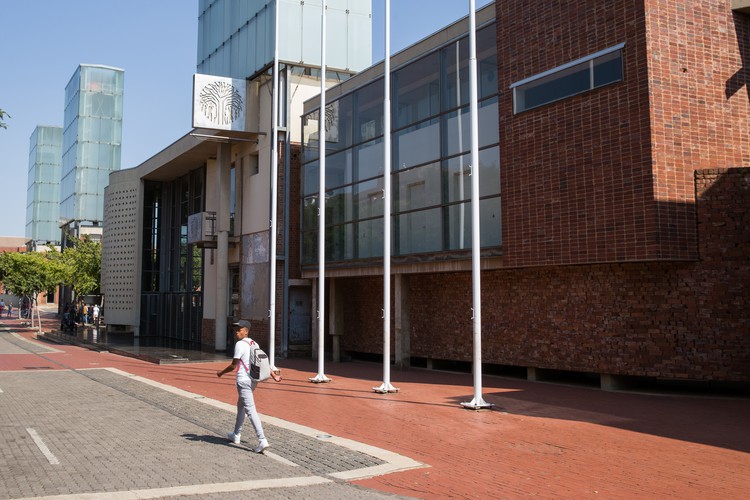
7 December 2021
A majority of judges of the Constitutional Court have ruled against awarding damages to about 130 shack dwellers in spite of broken promises by the Ehurhuleni municipality. Archive photo: Ashraf Hendricks
In a close-call judgment, the Constitutional Court has ruled five judges to four against awarding constitutional damages to about 130 residents of an informal settlement, who have been living in squalor in shacks for more than two decades, in spite of promises and court orders.
The residents of the Winnie Mandela informal settlement have been litigating for years against the Ekurhuleni municipality and its officials. They were allocated sites and RDP houses in 1998, which they say were then given to others in a corrupt process. They secured a court order, compelling the municipality to provide them with housing within a certain time-frame, but the municipality did not comply.
They sought an order for constitutional damages totalling about R15 million from the Pretoria High Court but were unsuccessful. They then appealed to the Constitutional Court.
In the main judgment handed down on Tuesday, Judge Chris Jafta (with Judges Mogoeng Mogoeng and Zukisa Tshiqi concurring) said as a matter of principle, constitutional damages could not be awarded to enforce socio-economic rights.
Judge Jafta conceded that the matter had a “long sad history, permeated by deplorable conduct on the part of the municipality which had failed to honour undertakings and obey court”.
But, he said, the mere existence of a right under the Constitution did not give rise to a positive obligation on the state to provide housing on demand.
“The failure to provide a house cannot cause an injury or damage to the individual in need of a house. And without injury, there can be no claim for constitutional damages.”
Judge Jafta said the state had to take reasonable measures to achieve progressive realisation of the right to access adequate housing but this also depended on available resources.
He said the applicants should have applied for a contempt of court order when the municipality did not comply with the order of the lower court. Or they should have sought eviction proceedings against the illegal occupants of their houses.
“They have various remedies at their disposal but they chose the wrong one.
“They are seeking damages as punishment for non compliance. This is a novel means of enforcing a court order and we were not told its source in law,” he said, noting that if it were recognised in law there would be “no end to litigation”.
He also noted that there were thousands of people waiting for housing “since the dawn of democracy” and awarding damages in this matter would, in effect, be treating the applicants differently to them.
Judge Mbuyiseli Madlanga (with Judge Nonkosi Mhlantla concurring), agreed that the application could not succeed. In a separate judgment they reiterated a previous ruling in the Constitutional Court that constitutional damages could only be awarded “if they were the most appropriate remedy available to vindicate constitutional rights”.
But Judge Steven Majiedt (with Judges Sisi Khampepe, Leona Theron and Pule Tlaletsi concurring) took the opposite stance.
“All the facts demonstrate poor governance at a local level and appalling levels of maladministration which continue to plague the residents of Winnie Mandela informal settlement, leaving residents forced to languish in squalor.
“And there is no end in sight. 20 years and three court decisions later, it would provide cold comfort to suggest that a contempt of court application is the answer. In fact, it is no answer at all,” he said.
Judge Majiedt said it was also unlikely that eviction proceedings would be successful because the current residents would have nowhere to go.
He said it was unquestionable that constitutional damages were the appropriate remedy in this case and he would have awarded a once-off amount of R10,000 per applicant “as a token” to acknowledge the harm suffered and avoid a situation where the public purse was not drained entirely.
The Socio-Economic Rights Institute of South Africa (SERI), which represented the applicants, said it would comment at a later stage.